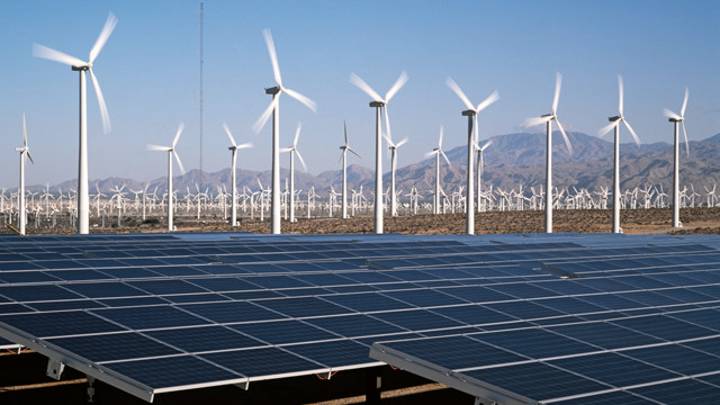It is estimated that about 92 million of the over 200 million people, that make up the entire population of Nigeria have no access to electricity.

Where access to electricity is available, a full day of uninterrupted supply is not guaranteed. Despite the abundance of natural energy sources, Nigeria faces significant electricity supply challenges stifling industrial growth, limiting commercial ventures’ expansion and profitability, and the well-being of people. Presently, the primary energy sources are gas and hydroelectricity. Although the country is diversifying to renewables, progress is extremely slow. This article makes the case for investments in Nigeria’s renewable energy.
Why renewable energy?
According to the International Energy Agency (IEA) ‘Renewable 2020’ report, Renewable energy capacity is set to expand by 50% between 2019 and 2024, led by solar energy. Solar, wind, and hydropower projects are rolling out at their fastest rate in four years, making the argument that the future lies in using renewable energy. Energy security concerns caused by Russia’s invasion of Ukraine have motivated countries to increasingly turn to renewables such as solar and wind to reduce reliance on imported fossil fuels, whose prices have spiked dramatically.
Global renewable power capacity is now expected to grow by 2,400 gigawatts (GW) over the 2022-2027 period, an amount equal to the entire power capacity of China today, according to Renewables 2022. This massive expected increase is 30% higher than the growth forecast just a year ago, highlighting how quickly governments have thrown additional policy weight behind renewables. The report finds that renewables are set to account for over 90% of global electricity expansion over the next five years, overtaking coal to become the largest source of global electricity by early 2025. Nigeria’s location in the tropics offers an abundance of sunshine all year round with over 2,600 hours of sunlight per year (about 7 hours of sunlight daily, on average).
Experts believe Nigeria has the economic war chest and environmental conditions to tap into renewable energy sources, especially solar. Estimates by the World Bank suggest that investing in solar-powered plants could increase the availability of electricity to almost 80 million people who currently have none. This means transitioning to solar-based energy could help diversify Nigeria’s energy portfolio and reduce high electricity bills.
Legal, Regulatory, And Policy Incentives.
Nigeria is not oblivious to the global trend and many opportunities and so is progressively evolving policy and regulatory frameworks to incentivize renewable energy such as the National Electric Power Policy 2001, Renewable Electricity Policy Guidelines 2006, and Electricity Power Sector Reform (EPSRA) Act 2005.
The EPSRA is the principal law that governs the Nigerian power sector. It also establishes the Nigerian Electricity Regulatory Commission (NERC), the principal regulator of the power sector in Nigeria. The NERC in performing its functions has established several policies and regulations like the NERC Mini-Grid Regulation 2016, NERC Renewable Energy Feed-In Tariff Regulations 2015, and recently the Independent Electricity Distribution Network (IEDN) licence. Aside from laws and policies, the Federal Government of Nigeria (FGN) has put incentives such as the VAT (Modification Order) 2020. This exempts specified renewable energy equipment from the application of VAT with respect to the importation or in-country sale of the equipment.
The FGN also launched the Solar Power Naija Project. The project focuses on providing five million households with solar home systems for off-grid communities, under the Nigeria Economic Sustainability Plan (NESP). The implementation of the project is facilitated by the Central Bank of Nigeria, which will make available NGN140bn (approximately US$340m) in direct and indirect loans to qualifying projects. Multilateral agencies and institutional investors have made impact investments on players in the sector. For example, the World Bank and the African Development Bank (AfDB) are currently partnering with the Rural Electrification Agency (REA) with respect to the Nigeria Electrification Programme with a US$350m commitment from the World Bank, and about US$148m from the AfDB.
According to the REA, the programme has so far provided electricity to five million consumers. The International Finance Corporation has launched a sustainable energy financing and advisory programme, the Climate Change Investment Programme for Africa, which will provide funds and advisory services to banks to help them increase financing for private sector energy efficiency, renewable energy, and cleaner production projects. Similarly, the EU has committed about US$47m in funding for renewable energy projects in emerging markets, including Nigeria.
These efforts appear to be yielding fruit, as many significant renewable energy projects are coming on-stream. In addition to the large number of mini-grids and small-scale solar Independent Power Projects (IPPs) springing up across the country, the FGN is also taking steps to boost the existing hydroelectric generation capacity, with the concession of Gurara Hydropower Project, the proposed concession of the Zungeru Hydropower Project and the planned development of the 3,050 MW Mambilla Hydropower Project.
Conclusion
Renewable energy will continue to rise in the upcoming decade, edging out fossil fuels and reducing greenhouse gas emissions. Governments worldwide, including Nigeria, are making laws, policies, and regulations to diversify to renewables. Energy companies must work to take advantage of existing incentives and opportunities such as marketing opportunities, reduction of emissions, lower energy costs, and many others.
References
- Emily Folk (2021) What the Future of Renewable Energy Looks Like https://earth.org/the-growth-of-renewable-energy-what-does-the-future-hold/
- Wolemi Esan, 2021 Renewable energy in Nigeria: law, regulation, trends and opportunitieshttps://www.ibanet.org/renewable-energy-nigeria
- JP Casey 2020 Electrifying Nigeria: could solar power one million households? https://www.power-technology.com/features/electrifying-nigeria-could-solar-power-one-million-households/
- Ikponmwosa Oghogho Solar Energy Potential and its Development for Sustainable Energy Generation in Nigeria: A road Map to Achieving this Feat https://www.researchgate.net/publication/262349356_Solar_Energy_Potential_and_its_Development_for_Sustainable_Energy_Generation_in_Nigeria_A_road_Map_to_Achieving_this_Fe
- Irena 2019 Renewable Power Generation Costs in 2018 https://www.irena.org/publications/2019/May/Renewable-power-generation-costs-in-2018
- Renewable power’s growth is being turbocharged as countries seek to strengthen energy security
- https://www.iea.org/news/renewable-power-s-growth-is-being-turbocharged-as-countries-seek-to-strengthen-energy-security.
Support InfoStride News' Credible Journalism: Only credible journalism can guarantee a fair, accountable and transparent society, including democracy and government. It involves a lot of efforts and money. We need your support. Click here to Donate